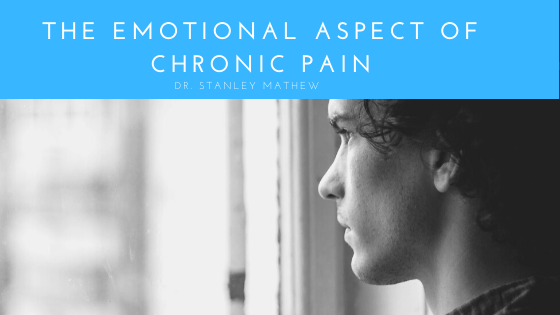Chronic pain is the worst.
It’s always there, running in the background of your life. It slowly drains your energy, wallet, and sanity. You go from professional to professional, seeking help, with mixed results. Some things help, but it feels like most of them don’t.
A lot of times, people think of chronic pain in the sense of its physical impact. Today, though, we’re going to look at the emotional aspects of chronic pain.
The Drain
If you’ve ever experienced chronic pain, then you’re already familiar with the drain it has. Your body dedicates so much energy to fighting it. You may tire much quicker than before the pain sets in.
Depending on the type of pain, there is also a financial drain associated with chronic pain. Regular medication and doctor visits add up. This strain can translate to added stress on your body, sometimes increasing the pain. It’s a vicious cycle.
The Science Of Pain
Pain happens when receptors in the body react to external stimuli. These receptors send messages to the brain, signaling that there is danger present. From a practical, evolutionary standpoint, pain is there to protect us from further injury. For example, if you touch a hot object and burn yourself, the instant pain makes you withdraw to safety.
Chronic pain, however, is different. When someone experiences chronic pain, the brain is constantly receiving these signals without regard for any active danger.
Treating Emotions
With so much brain activity going, it’s no surprise that negative emotions can heighten pain. Fixating on how bad something hurts makes your body go, “Oh! We’d better double down on this!”
In addition to treating your pain, you have to treat your underlying emotions too. Begin by recognizing the frustrations and fears associated with your health problems. They take many forms. Some common ones are financial worries, depression, and the nagging feeling that you may never find a permanent solution.
Address these fears. Take them to professionals, who can help you manage them the way you do physical pain. Tackle things one day at a time. Have courage to accept the things you can’t change, and strength to fix the things you can.


